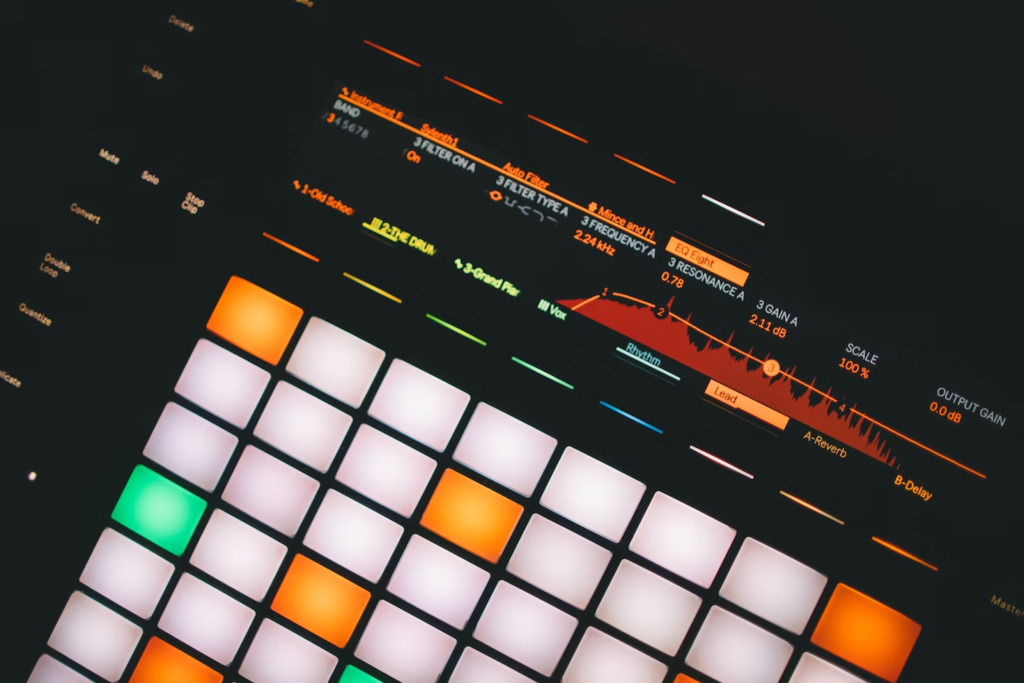
Understanding the Distinction between EDM and Electronic Music
India's first online studio
Table of Contents
Recognizing the Differences Between EDM and Electronic Music
Discover the distinctions between two subgenres of the electronic music genre: EDM and electronic music. Examine the traits, history, and emphasis on sound design of electronic music. Learn about the danceable, bouncy, and diverse electronic music genres that are included into EDM, along with its emphasis on providing an immersive experience.
Recognize the main distinctions between electronic dance music (EDM) and electronic music in terms of live performance, target audience, and profitability. Examine the development of EDM and electronic music, as well as the hazy borders between genres. Recognize the distinctive qualities and diversity that each electronic music subgenre offers.

EDM and Electronic Music
In the music business, electronic music has emerged as a major genre, enthralling listeners all over the world with its distinctive sounds and creative production methods. The term Electronic Dance Music (EDM) refers to a subgenre of electronic music. Although the phrases “electronic music” and “EDM” are sometimes used synonymously, they differ from one another. We will examine these variations and clarify the traits that distinguish them in this post.
Defining Electronic Music
Techno, house, and experimental music are just a few of the many genres that go under the umbrella term “electronic music.” It is a genre whose sounds are mostly produced by electronic instruments including drum machines, samplers, and synthesizers. Electronic music’s origins may be found in the mid-1900s, when innovators like as Karlheinz Stockhausen and Pierre Schaeffer began experimenting with electronic sound modification.
The focus on sound modification and design is one of the characteristics that set electronic music apart. In order to challenge established musical norms, artists in this genre frequently concentrate on producing distinctive timbres and textures. Electronic instruments and computer production techniques are utilized to create the complex melodies, pulsing basslines, and repeating rhythms that characterize electronic music.
Exploring EDM
Conversely, electronic dance music, or EDM, is a subgenre that dates back to the late 20th century and had tremendous growth in popularity in the 2000s. EDM is a mainstay at parties, festivals, and clubs because of its upbeat and danceable vibe. The genre combines elements of house, techno, trance, and dubstep, among other electronic music genres.
EDM is frequently linked to energetic beats, memorable lyrics, and powerful hooks that are meant to get people moving on the dance floor. With its soaring synthesizers, driving rhythms, and explosive drops, it strongly emphasizes giving the listener an immersive and euphoric experience. EDM production methods are especially designed to elevate live performances and foster a community vibe.
The Key Differences
Although electronic music is a broad category that includes EDM, there are a few significant distinctions that make it stand out:
Target Audience
A broad spectrum of listeners, including those who enjoy ambient and experimental sounds, find appeal in electronic music. Conversely, the primary target audience for EDM is younger, and they are looking for a lively and upbeat musical experience.
Live Performance
A concert setting is a common venue for electronic music performances, where the artist’s inventiveness and sound experimentation are highlighted. EDM, on the other hand, is made for live performances, as DJs and producers take the stage to give thrilling sets.
Commercial Success
In recent years, EDM has had tremendous commercial success, with tracks reaching the top of the charts and widespread recognition. Even while it’s powerful in and of itself, electronic music might not necessarily be as well-known.
The Evolution of Electronic Music
Over time, EDM and electronic music have both changed to reflect shifting fads and advances in technology. Artists in the electronic music scene are always pushing the envelope by trying out novel sounds and production methods. In a same vein, EDM has broadened its scope by accepting collaborations with mainstream musicians and fusing aspects from other genres.
It’s crucial to remember that there are situations when it’s difficult to tell electronic music from EDM. Genre borders are typically ill-defined, and musicians frequently incorporate elements of several genres into their work to produce a distinctive sound. The artistic expression and the effect that the music has on its audience are ultimately what count most.
Conclusion
Although electronic music and EDM contain similar elements, they cater to different audiences and have unique qualities of their own. While EDM focuses on providing an upbeat and dance-oriented experience, electronic music spans a wide spectrum of styles and creative methods. Recognizing these variations enables us to value the diversity found in the electronic music genre as well as the distinctive contributions made by each subgenre.
Check out this blog related to this blog
Check our featured blog
What is R&B soul music Genre?
Can AI Replace Human Musicians? Exploring the Future of Music Creation
Can AI replace human artists? Artificial intelligence in music Can AI Replace Human Musicians? Introduction Artificial intelligence in music (AI) is swiftly changing multiple industries, and the music sector is no different. The incorporation of AI into music production, songwriting, and live performance has opened the door to inventive practices and technologies that question conventional…
How to Use Vocal Compressor?
How to Use Vocal Compressor? Vocal compression is an important step in music production for creating a refined sound. This article covers everything from how to set up your compressor and dial in the optimum settings to advanced techniques like as parallel and side-chain compression. Learn how to control dynamic range, establish voice presence, and…
Difference Between Home Studio and Professional Studio
Difference Between Home Studio and Professional Studio Discover the fundamental distinctions between home and professional audio production facilities. Learn about each type of studio’s equipment, technology, and expenses, as well as the benefits and drawbacks. Whether you’re a hobbyist or a professional, this guide will help you select the best configuration for your requirements. Introduction…

Leave a Reply